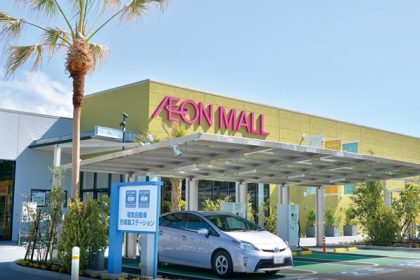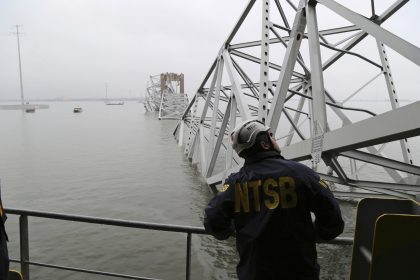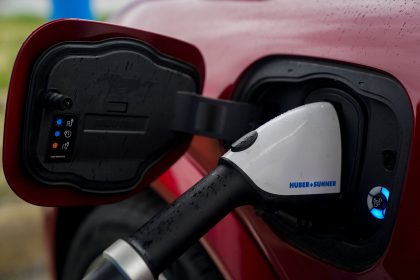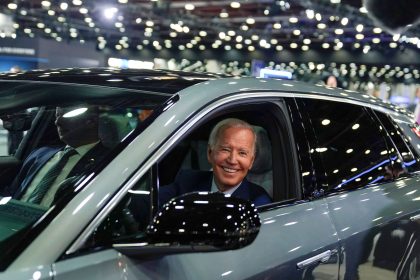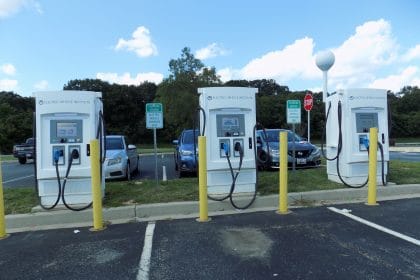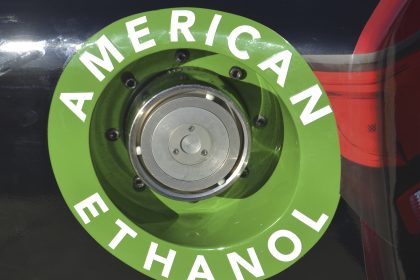California Moves to Phase Out Gas-Powered Trucks by 2036
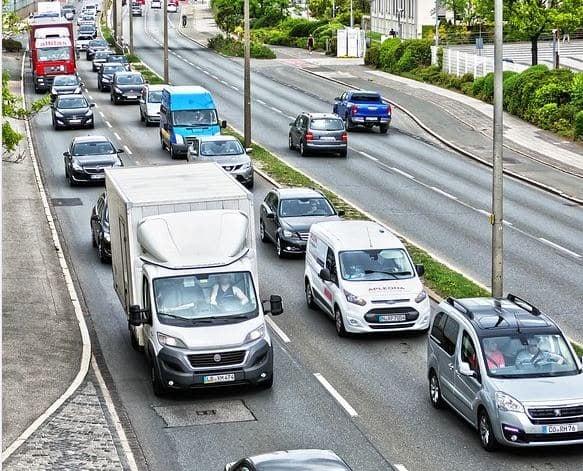
SACRAMENTO, Calif. — Large commercial trucking firms and bus operators must start transitioning to an electric fleet next year and be fully fossil-fuel free by 2036 if they want to keep operating in California, the state’s Air Resources Board said Friday.
Known as Advanced Clean Fleets, the new rule puts the state on the path toward fulfilling Gov. Gavin Newsom’s goal of having all medium- and heavy-duty trucks in the state use zero-emissions technology by 2045.
In order to go into effect, the Environmental Protection Agency must grant the state a waiver under the Clean Air Act to legally enforce it. If approved by the federal government, the California rules will be the most stringent practices related to truck emissions in the country.
“The future happens here first, and California is once again showing the world what real climate action looks like,” Newsom said in a press release issued Friday.
“Last year, our state approved one of the world’s first regulations requiring all new car sales to be zero emissions. Now, with these actions requiring all new heavy-duty truck sales to be zero emission and tackling train pollution in our state, we’re one step closer to achieving healthier neighborhoods and cleaner air for all Californians,” the governor said.
According to state officials, the new regulation will be particularly beneficial to some of California’s most vulnerable communities, which often sit near trucking corridors and warehouse locations.
Though trucks represent only 6% of the state’s vehicles, they are responsible for about a quarter of the state’s on-road greenhouse gas emissions and over a third of the state’s emissions of the harmful air pollutant NOx.
The reduced nitrogen oxide and diesel pollution — of which there is no known safe level of exposure — will bring an estimated $32 billion in health savings by preventing 3,200 premature deaths and 1,500 emergency room visits and hospitalizations, the governor’s office said.
“This rule provides manufacturers, truck owners and fueling providers the assurance that there will be a market and the demand for zero-emissions vehicles, while providing a flexible path to making the transition toward clean air,” Liane Randolph, chair of the board, said in a statement.
The new rules, however, have their critics, not the least of which is the American Trucking Associations, a trade organization for the trucking industry.
In a lengthy statement posted to the group’s website, Chris Spear, its president and CEO, objected to an “unelected board” effectively forcing trucking companies to buy zero-emission trucks.
“Fleets are just beginning to understand what it takes to successfully operate these trucks, but what they have learned so far is they are significantly more expensive, charging and refueling infrastructure is nonexistent, and [zero-emissions vehicles] are not necessarily a one-for-one replacement — meaning more trucks will be needed on California roads to move the same amount of freight,” Spear said.
“California is setting unrealistic targets and unachievable timelines that will undoubtedly lead to higher prices for the goods and services delivered to the state and fewer options for consumers,” he continued. “As it becomes clear that California’s rhetoric is not being matched by technology, we hope the board will reverse course and allow trucking companies the freedom to choose the clean technologies that work best for their operations.
“ATA-member companies work tirelessly to deliver the nation’s freight while deploying the cleanest technologies available. Over the past 35 years, those efforts have produced a 98% reduction in truck emissions,” Spear said. “We continue to say ‘Yes’ to advancing cleaner technologies, but achievable targets and realistic timelines matter.”
Dan can be reached at [email protected] and @DanMcCue



















